Dominik Mysterio’s story is shaped by inherited legacy, fierce determination, and a willingness to confront both public doubt and personal vulnerability. Standing in the shadow of Rey Mysterio—a man celebrated worldwide for revolutionizing lucha libre and inspiring generations—Dominik’s every move faces scrutiny. The assumptions are familiar: a famous last name, a destiny in professional wrestling, an expectation of success. What surprises both critics and fans, however, is how Dominik steadily transformed expectation into accomplishment, building a career rooted not in privilege, but in authenticity and evolution. We examine Dominik Mysterio’s rise in WWE and his continued evolution.
From almost the moment he could walk, Dominik was surrounded by the dramatic world of WWE. Even as an eight-year-old, he appeared in headline-grabbing WWE storylines: most notably, a fraught custody battle featuring his father and Eddie Guerrero. This plotline, blending wrestling theatrics with relatable family conflict, forced Dominik to understand the emotional stakes and complexities of performance at an age when most children were still chasing playground games instead of television cameras. Eddie Guerrero, more than a plot partner, offered a living example of wrestling’s emotional intensity, showing Dominik how story and sport could be inseparable—lessons that lingered and would later influence his approach to wrestling’s distinctive brand of storytelling.
Dominik, despite his famous surname, faced deep skepticism regarding his place in WWE. The path of second-generation stars in wrestling is never smooth: public suspicion is often harsher, and the shadow of a parent’s greatness can either stifle or spur new ambition. Rather than shy away, Dominik leaned into the challenge, determined to earn respect through effort over entitlement. He pursued rigorous, unglamorous wrestling training far from the bright lights. Mentored by Jay Lethal—himself an expert in blending technical skill with storytelling—and then by Lance Storm in Canada, Dominik committed himself for years outside the public view. These were years of practicing signature moves like the 619, studying match psychology, and sacrificing personal milestones, all in service of building genuine in-ring legitimacy.
What stands out about Dominik’s approach is its patience. He understood that rapid success can be fleeting and that wrestling rewards gradual, consistent improvement. WWE’s creative team took the same patient approach: introducing him not as a sudden star but as part of his father’s orbit, so fans could adjust to seeing him not just as Rey Mysterio’s son but as an evolving character in his own right. The design was deliberate and careful—a lesson that in wrestling, as in life, narratives built slowly often hold up best under pressure. Dominik’s gradual integration prevented the backlash that too-often greets “chosen one” debuts, letting his growth align naturally with the audience’s familiarity and expectations.
For Dominik, wrestling was never just about athletic ability. From the beginning, he invested as much energy in mastering crowd engagement and microphone work as he did in physical routines. Early on, he wasn’t always greeted by cheers; instead, a volley of boos greeted his efforts—signaling that the audience was testing his mettle. This provided an unexpected opportunity: by embracing the role of a villain and leaning into the psychology of audience manipulation, Dominik gradually turned resistance into intrigue. He learned that being booed was not a failure, but an invitation to deepen his act and expand his range as a performer. This adaptability marked a turning point, confirming that true audience connection comes as much from vulnerability and risk-taking as from technical execution.

Dominik’s first major championship moment came at WrestleMania 41: a stage famous for breaking and making careers. In the glare of a massive audience, Dominik prevailed in a demanding Fatal 4-Way match against Bron Breakker, Penta El Zero M, and Finn Bálor. The victory signaled his debut as Intercontinental Champion—a shift not just in belt ownership but in fan perception. Rather than the skepticism that once colored his appearances, Dominik found himself celebrated. This win also carried a deeper resonance, coming soon after the death of his great-uncle Rey Misterio Sr., a revered trainer whose influence shaped generations of the family. Dominik honored his lineage, wearing a tribute shirt and acknowledging both his past and his place within a continuing inheritance. In this way, his victory was less a solitary accomplishment than a multigenerational achievement, honoring family and the wider wrestling community at the same time.
Rey Misterio Sr.’s passing was a significant personal and professional moment. For Dominik, it served as a reminder that his family’s tradition in wrestling wasn’t merely about moves and titles, but about teaching confidence, skill, and deep respect for the craft. By sharing his grief openly—through the simple act of a black heart emoji alongside a photo—Dominik revealed a thoughtful approach to loss and legacy. His statement spoke not by grand gesture, but with an understated message about the seriousness of upholding and building on what came before. Wrestling, for Dominik, became a way to both process his past and communicate with fans who also understood what it means to bear, and honor, the weight of inheritance.
His path wasn’t just about measuring up to Rey Mysterio or living up to senior family expectations. With each passing year, Dominik became more fluent in the subtle language of wrestling: knowing when to pivot, how to recalibrate, and when to surprise. After a celebrated but emotionally charged match against his own father at WrestleMania 39, Dominik responded not with boastfulness but with humility and reflection. It was a mark of maturity—proof that his journey would not rest on nostalgia, but on the willingness to step out of someone else’s story and shape a narrative uniquely his own.
Dominik’s growth included an openness to showing vulnerability, an unusual trait in a spotlighted industry often marked by posturing. By speaking frankly about fear, uncertainty, and change, he redefined what it means to be a WWE superstar born into fame. His transparent approach dissolved the stereotype of family privilege. Fans and peers began to see a competitor committed to honest self-improvement rather than easy success—and his popularity grew alongside this shift.

In recent years, Dominik’s journey has become even more intricate, layered by new partnerships and narrative turns. After WrestleMania 40, a pivotal alliance with Liv Morgan transformed his story yet again. What began with hints of romance quickly evolved into a psychologically nuanced on-screen partnership that upended old alliances within the Judgment Day faction. Morgan’s character combined playful charm and fierce ambition, pushing Dominik into tough choices and amplifying the drama that comes with shifting factional loyalties. The story borrowed tropes from soap operas and reality television, adding a contemporary energy to WWE’s familiar rhythms and creating space for Dominik to showcase new sides of his personal and performance style.
This new partnership reached a flash point at SummerSlam 2024, when Dominik’s intervention cost Rhea Ripley a shot at the Women’s World Championship. In a single act, Dominik signaled his formal break from his old allegiance and forged a path with Morgan. The outcome was not just personal; it triggered waves of betrayal, infighting, and realignment within Judgment Day. Finn Bálor betrayed Damian Priest; Priest soon lost his championship; the landscape shifted. The power vacuum and shifting alliances elevated Dominik to the center of WWE’s most dynamic faction drama, proving he had moved well beyond legacy to become a key figure in shaping the company’s creative future.
As Judgment Day reformed, Morgan, Dominik, Balor, Carlito, and JD McDonagh joined forces, setting up a dramatic split with former members Ripley and Priest, who shifted to more heroic personas. Fans now wait for an explosive mixed tag team showdown at the Bash in Berlin—likely to feature Dominik and Morgan squaring off against their former allies. This feud isn’t just about victory in the ring, but about larger questions of loyalty, identity, and reinvention: themes that resonate pointedly in Dominik’s ongoing story.
A persistent theme in Dominik’s rise has been WWE’s careful plotting and faith in the value of delayed gratification. Rather than accelerating his ascent, the company allowed his character to experience setbacks, reinventions, and moments of redemption. His journey mirrored the broader tension within wrestling: how to honor tradition while continually refreshing what it means to compete, belong, or win. Dominik’s mastery at balancing homage with innovation—respecting family history, even as he dares to rewrite parts of it—demonstrates the ongoing appeal of his career. Every alliance, betrayal, and comeback adds new facets to a constantly evolving reputation.
The broader appeal of Dominik Mysterio’s story lies in how he reshapes familiar wrestling tropes through authenticity and change. Wrestling is, at its core, about change: costumes, alliances, heroes, and villains can all shift overnight. But for those who endure—who adapt while staying true to deeper values—there is space to define an era. Dominik does not simply coast on his last name; instead, he dwells in the difficult space between honoring what came before and striking out into new territory—between established expectation and bold unpredictability.
The effect is transformative on several levels. For WWE, Dominik is both a product of history and a vanguard of its future. He brings credibility to stories about family and legacy, connecting seasoned fans with those discovering lucha libre traditions for the first time. For the audience, he is an illustration of hard-earned credibility, of how willingness to be real—to admit doubt, risk, or heartbreak—can win over even the harshest critics.

As Judgment Day’s narrative evolves, Dominik stands as a linchpin—a reminder that wrestling’s greatest stories are not those of unbroken success, but of characters who adapt, stumble, and ultimately find new ways to rise. His alliance with Morgan, shifting loyalties, and ability to shift between humor, sincerity, and aggression make every appearance unpredictable. Even as he enters the most chaotic and crowded moments of WWE storytelling, he remains defined by a commitment to growth. There are no shortcuts, only the reward of knowing each step forward was truly earned.
Dominik’s legacy—still very much a work in progress—speaks to the changing heights of professional wrestling. In a business built on spectacle, his greatest asset may be his willingness to keep learning, to stay candid with fans, and to respect the fine line between respect for the past and excitement for what comes next. Wrestling is never static, and neither is he. The future remains unwritten, but Dominik Mysterio continues to chart a path marked by both homage and invention.


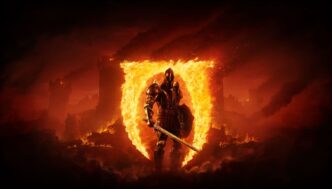
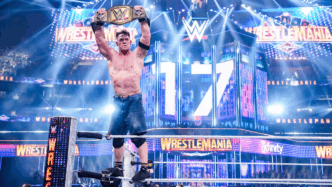
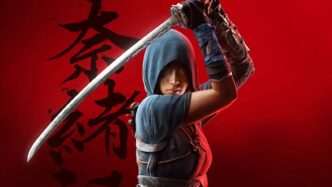
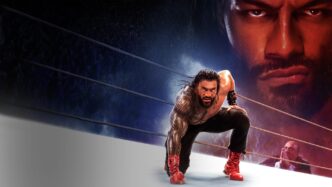
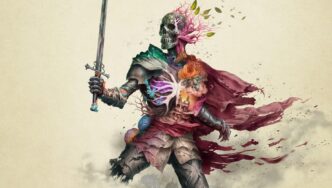
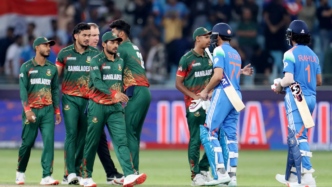
Leave a Reply